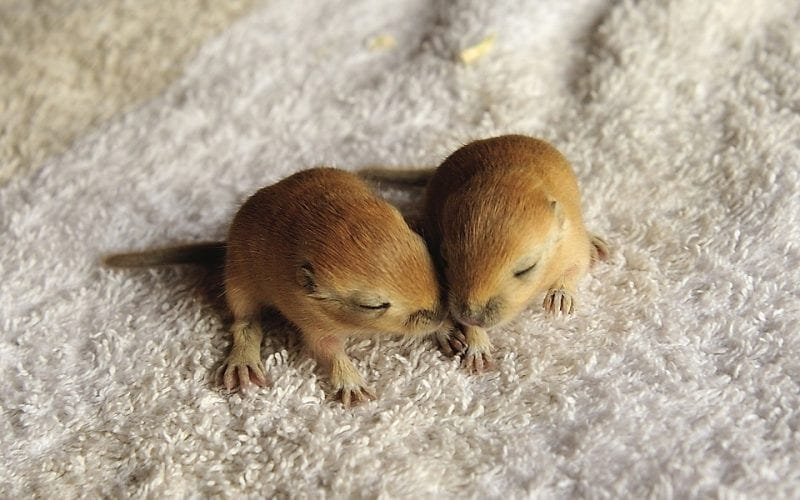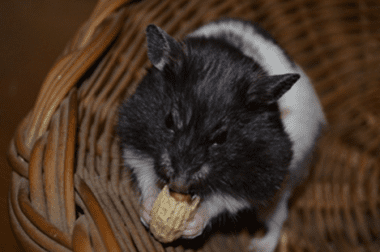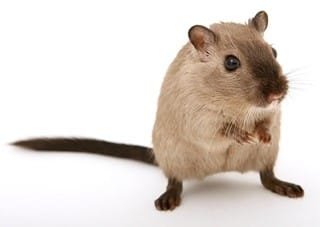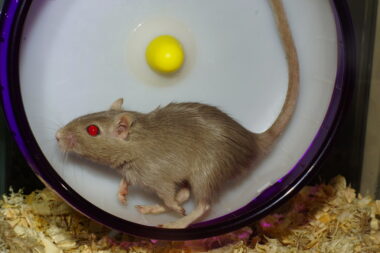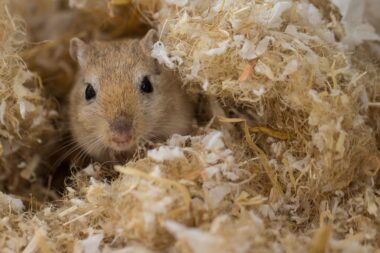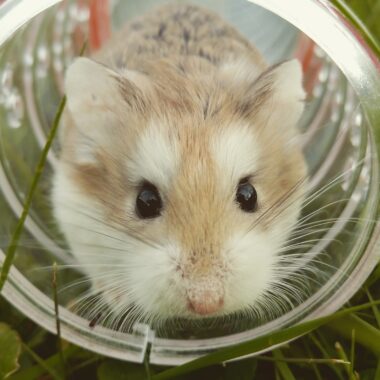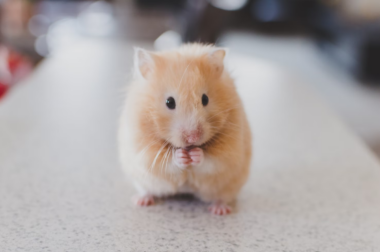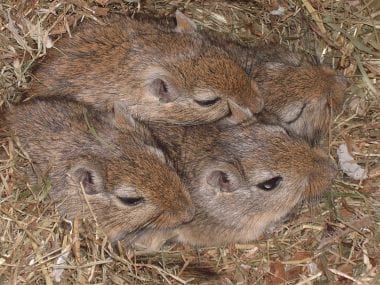
A pocket pet such as a gerbil, mouse, or hamster is a fun animal and is extremely rewarding to keep. Also, such a pet can remain healthy with less maintenance as compared to larger animals such as dogs or cats. It is also simple to breed a gerbil and litters are typically extremely successful.
Young gerbils are referred to as pups when they are around a week old. It is the time when their appearances resemble a newborn pup and hence are called so. Similar to most of the other small rodents, a gerbil is completely dependent on its parents until they are a few weeks old. A gerbil can be an excellent parent. It does a good job while taking care of its young ones and needs minimum human intervention.
There is always a possibility though that the mother gerbil will not live during childbirth or may even be unwilling to look after her litter. As such, the rate of baby mortality can be high in these circumstances. It does not mean that you cannot look after them. There are some easy ways to improve the possibility of making sure that a baby gerbil survives its infancy. The litter size may not be the same and usually varies between three and six. They are easy to look after.
Typically, a mother gerbil will take care of its litter. In the beginning, baby gerbils survive only on milk. They start eating solid food when they are around five-week-old. A baby pup can fall sick when it is underfed. You can offer a water bottle, some entertainment, and wood for chewing on.
Ensure that the cage of your gerbil is cleaned once every week. The article guides you on how to feed a young gerbil if its mother is around and what you can do when things are not going right.
What does a baby gerbil eat?
A baby gerbil feeds on the mother’s milk when it is born. It is the time when it is not prepared for solid food. In case the mother is well-fed, it can feed all its young ones simultaneously. Weaning happens when a baby gerbil has become around five-week-old. At this time, the mother gerbil will start rejecting its young ones if they come for milk. Thereafter, the pups will begin eating solid food.
You may start giving solid food to the baby gerbils after weaning. Typically, the most suitable solid food for a gerbil is a quality gerbil food mix. It includes the following ingredients mentioned below:
i) Soy bean hulls
ii) Wheat grains
iii) Dried vegetables
iv) Sunflower seeds
All these above ingredients include the same nutrients, which are available in the wild diet of a gerbil. These are ideal for captive pets. Make sure that you do not place their food in the food bowl. Doing so will encourage them to struggle for space. Rather sprinkle the food uniformly over the gerbilarium. When you’re your gerbil is an orphan, you may offer it formula to eat under the supervision of your vet.
A young gerbil is equipped enough to find and eat food for itself. A gerbil is a forager, which means it relishes digging for food. It will dig around their enclosure to look for food items. So, you need not hand feed the baby gerbils. Many of you would be aware that a mother gerbil can eat its young ones. It is a common behavior prevalent in rodents. There are situations where you may have to separate them to prevent such an occurrence.
Gerbils living in the wild can produce milk for only a specific number of their babies. When a gerbil has too many babies, all of them can be undernourished. Mothers that prefer survival of the fittest might kill anyone of the young ones instead of allowing all their young ones to remain underfed. Following are some reasons why a baby gerbil cannot be left alone:
1. A gerbil requires its mother: Baby gerbils cannot live without the milk of their mother until five weeks. They are unable to consume solid food. As such, they could starve while left alone.
2. A “formula” cannot be fed to a gerbil: A gerbil lacks efficiency while storing fat. So, food such as baby formula or high-fat cow’s milk would be inappropriate for them.

Tips for separation
Conditions such as cannibalization and abandonment are not commonplace in gerbils. However, that does not mean these cannot occur. In case a mother gerbil fails to look after her young ones or tries to take away their lives, it is recommended that you separate the pups from the mother. Try to give nourishment to the babies with any good kitten milk replacement. You may consult your vet for suggestions on the best step to take when it becomes an absolute necessity. A vet will consider the size and age of the babies and the prevailing circumstances. He/she will then recommend how these babies can be kept well-fed and warm.
Feeding
First things first and you have to procure some kind of a milk replacer. When you are unable to find anything specific for rodents, you may opt for a kitten milk replacer. You will come across nursing bottles being sold along with the milk replacer. Most pet stores will have these bottles specifically designed for kittens and puppies. However, they could be too big for your baby gerbil.
However, you may use a piece of fabric’s corner as a replacement. Avoid using terry cloth such as flannel or wash clothes as they have a tendency to become fuzzy. Also, nursing babies can swallow fibers.
An alternate solution can be to use a small syringe minus a needle attached to it for nursing the baby gerbils. However, you have to apply caution while pushing the plunger for giving more milk to the baby. Typically, pushing out a tiny drop and allowing the nursing gerbil to lick it off can be the best solution. It will ensure that they are not getting too much milk at the same time. You may obtain these syringes from a pharmacy or a vet’s office. A majority of pharmacies are willing to sell a syringe need for your rodents.
You need to feed the babies once in everyone to a couple of hours. The time can vary with the babies’ age and species. The most suitable means to ascertain feeding intervals would be to keep a close watch on the litter. Thereafter, set a timer once the feeding is completed. If the young ones start nuzzling around or become more active for food, you should check the timer. Use this as the feeding interval.
How much you feed them will also keep varying. Smaller ones may not require more than 3-4 drops of milk during each feeding. Keep a close tab on their bellies. If they start getting distended, stop feeding as they must have had enough. It could not be healthy to give the litter more milk then.
When the baby gerbils are around a week old, they will require more substance to the diet. You may then start offering baby cereal, which is originally made for human babies along with a small quantity of milk replacer mixed with mixed grains, oatmeal, or rice.
As their teeth start developing, seeds and grains from a grown-up rodent food can be introduced. Make sure to soak them properly in milk replacer or water at the start. Based on the species, the young ones may be weaned thoroughly on adult food when they are three to four weeks old.
Gerbils require the following:
1. Clean and fresh drinking water should be constantly made available in the drinking bottle that comes with the metal sipper tube.
2. Water should be changed at regular intervals. The nozzle and the bottle should be also cleaned properly.
3. Gerbils should be given a balanced and good quality diet, including all essential minerals and nutrients required for their bodies.
4. Food should be sprinkled directly on the bedding’s surface so that squabbling and fighting can be prevented.
5. A wide variety of fruits such as oranges, apple, melon, and pear can be used to supplement the ration of your baby gerbil. You should also give veggies to them such as fennel, pumpkin, carrot, and cucumber. Make sure that you are not giving rhubarb or grapes to your pets as they can be poisonous to the rodents.
6. It is imperative to avoid certain seeds in excessive amounts such as sunflower. These seeds can be fatty leading to obesity. Instead, settle for seeds of pumpkin as they are supposed to be a healthier treat.
7. Avoid sudden changes in their food or diet. They should not be fed food that has become stale as it can lead to stomach upset.
8. Monitor daily to find out the quantity of food and drink consumed by them. If the food or water consumption decreases or increases from their normal level or their feces tend to be moist, take them to the vet immediately.
